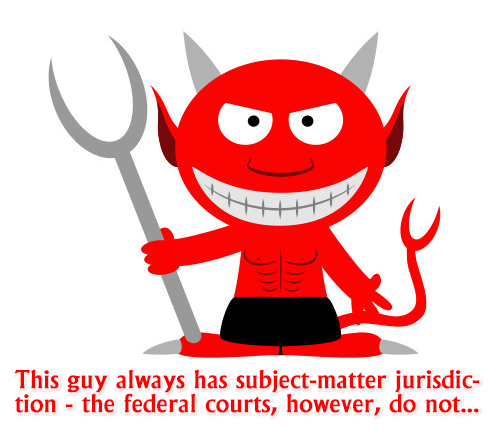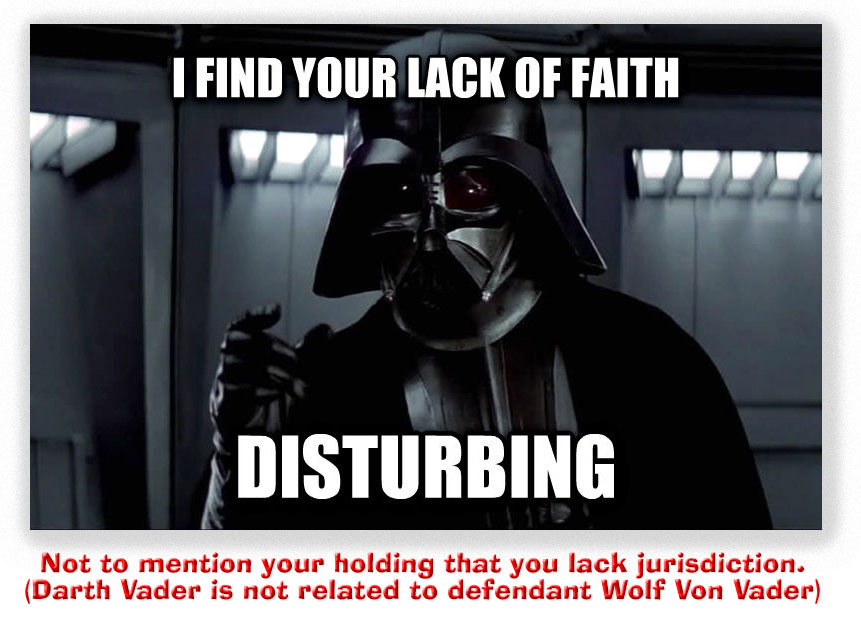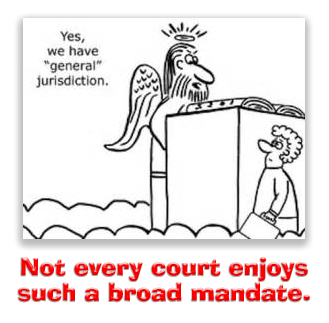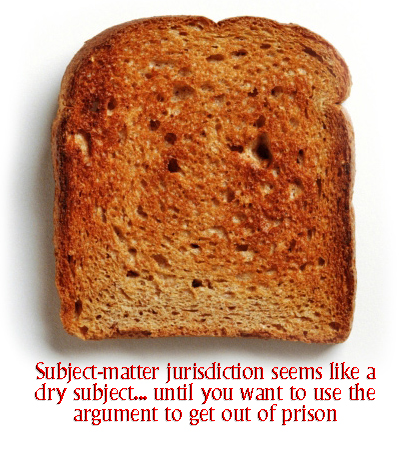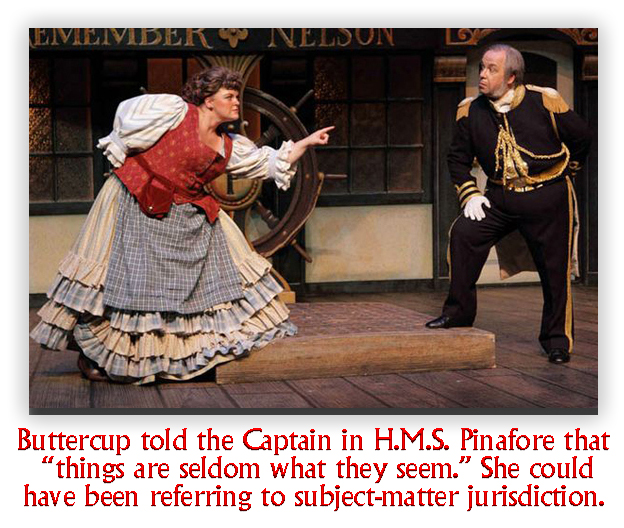We post news and comment on federal criminal justice issues, focused primarily on trial and post-conviction matters, legislative initiatives, and sentencing issues.

SUBJECT-MATTER JURISDICTION IS EASY-PEASY
If there is any post-conviction issue that is as often raised as it is without merit, it’s got to be subject-matter jurisdiction.
In second-grade civics, we 7-year-olds learned that federal courts are courts of limited jurisdiction. As my sainted teacher, Minta Newmeyer, explained to my attentive classmates and me, this means that those courts – creatures of statute – may only hear cases on subjects approved by Congress. Want to take your neighbor to federal court because her magnolia tree drops a mess on your yard every fall? Tough. Trespass and nuisance are perfectly good common-law claims, but Congress has not authorized federal courts to hear such quotidian bellyaches. For you to hail your pesky neighbor into federal court, you have to raise a cause of action that a federal court is allowed to hear.
 The concept is easy-peasy. Yet, I see a lot of inmate-written post-conviction arguments made that the federal district court that convicted the prisoner somehow lacked subject-matter jurisdiction to hear the underlying criminal case for one wacky reason or another.
The concept is easy-peasy. Yet, I see a lot of inmate-written post-conviction arguments made that the federal district court that convicted the prisoner somehow lacked subject-matter jurisdiction to hear the underlying criminal case for one wacky reason or another.
Preparing to win a federal conviction may be as as complex as a nine-course meal, but determining subject-matter jurisdiction for a federal criminal action is as easy as boiling water. Has the defendant been accused of violating a federal criminal statute? Is the case filed in federal district court? If the answer to both questions is ‘yes’, the court has subject-matter jurisdiction.
Prisoners screw this simple concept up all the time. But they aren’t the only ones not to get it. Sometimes the court itself can be fooled, as the 5th Circuit reminded us last week.
Daisy Bleuler and Paulo Murta, both Swiss citizens working in wealth-management firms, are charged with running an international bribery scheme in which U.S. businesses laundered bribes to Venezuelan officials through their Swiss firms. Daisy has never been to the USA. Paulo came over once to Miami but not to the Southern District of Texas (where the indictment was handed up).
Eight defendants were indicted for violating the Foreign Corrupt Practices Act. Two of them – Daisy and Paulo – moved to dismiss on the grounds the court lacked subject-matter jurisdiction. The district court agreed, finding that “the FCPA and money-laundering statute did not apply extraterritorially,” that is, could not be applied to non-citizens’ actions that did not take place in the USA.
Because there was no “direct or undisputed evidence” Daisy had an agency relationship in the United States, the district court found that it lacked jurisdiction to adjudicate the FCPA case. The district judge said the money-laundering counts failed because Daisy did not commit any portion of the offenses “while in the United States”; and no one alleged that Paulo was in the USA “at the time the alleged transactions occurred…”
 The 5th Circuit made short work of what appears to have been a complex district court holding. “In the criminal context,” the Circuit held, “subject matter jurisdiction is straightforward.” Noting that 18 USC § 3231 provides that “the district courts of the United States shall have original jurisdiction… of all offenses against the laws of the United States,” the 5th said, “To invoke that grant of subject matter jurisdiction, an indictment need only charge a defendant with an offense against the United States in language similar to that used by the relevant statute. That is the extent of the jurisdictional analysis: ‘a federal criminal case is within the subject matter jurisdiction of the district court if the indictment charges that the defendant committed a crime described in Title 18 or in one of the other statutes defining federal crimes.”
The 5th Circuit made short work of what appears to have been a complex district court holding. “In the criminal context,” the Circuit held, “subject matter jurisdiction is straightforward.” Noting that 18 USC § 3231 provides that “the district courts of the United States shall have original jurisdiction… of all offenses against the laws of the United States,” the 5th said, “To invoke that grant of subject matter jurisdiction, an indictment need only charge a defendant with an offense against the United States in language similar to that used by the relevant statute. That is the extent of the jurisdictional analysis: ‘a federal criminal case is within the subject matter jurisdiction of the district court if the indictment charges that the defendant committed a crime described in Title 18 or in one of the other statutes defining federal crimes.”
Whether a statute reaches extraterritorial acts is a defense to a criminal charge, the Circuit said, but it is not a challenge to the district court’s subject-matter jurisdiction.
United States v. Bleuler, Case Nos 21-20658, 2023 U.S.App. LEXIS 3097 (5th Cir. Feb 8, 2023)
– Thomas L. Root


